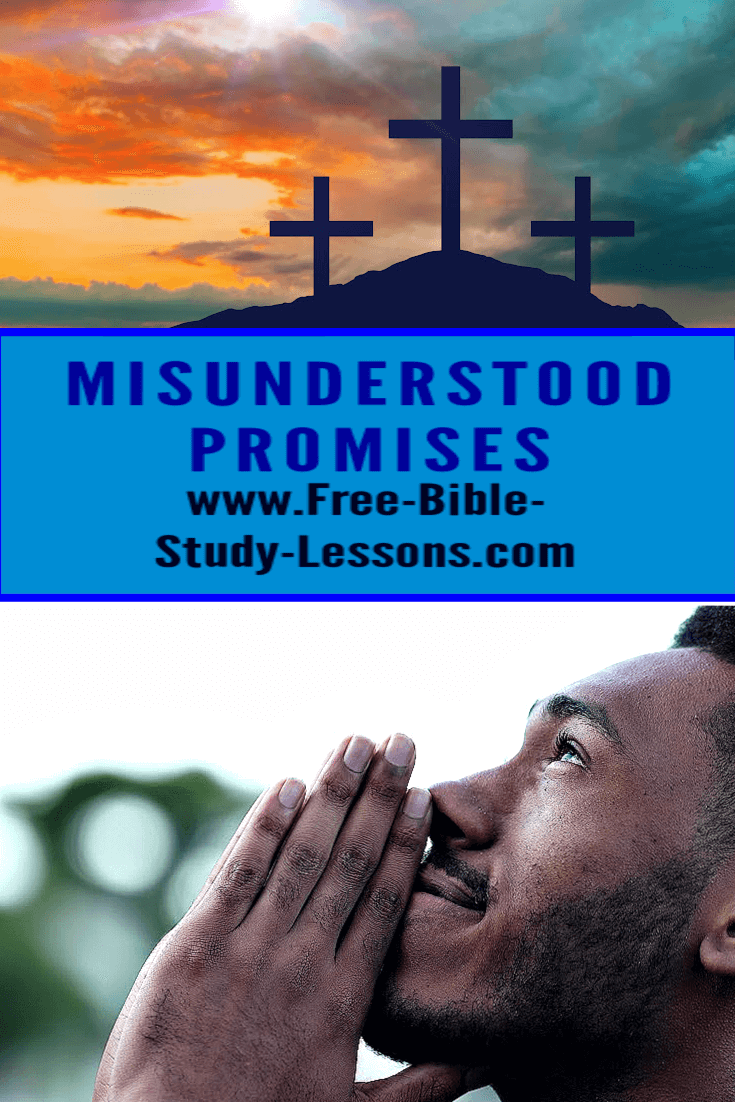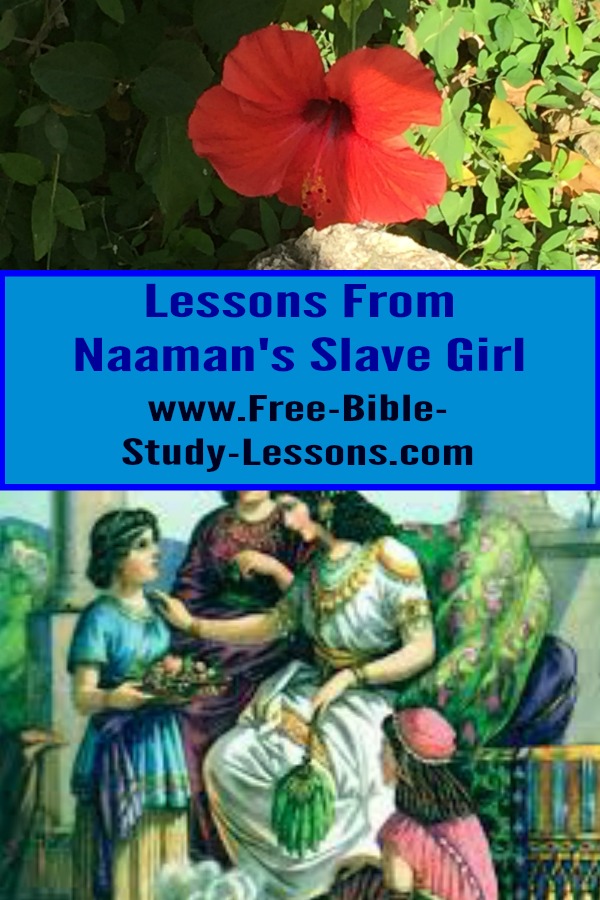| site search by freefind |
- Home
- Free Bible Courses
- Feed Yourself
- Feed Yourself Lesson Five
[If you purchase anything on this site, I may make a commission. Disclosure Policy]
Feed Yourself Lesson Five
Context: Scripture

"All scripture is given by inspiration of God, and is profitable for doctrine, for reproof, for correction, for instruction in righteousness: That the man of God may be perfect, thoroughly furnished unto all good works." 2 Tim. 3:16-17
Perfect, by the way, means mature. God wants us to be mature Christians trained to do what is right.
Sitemap -
Newsletter -
Statement Of Faith -
Donate
Follow us on social media for daily Scripture comments and more at MeWe, Facebook or YouTube.
God gives all Scripture for our benefit. The study of Scripture can teach us everything we need to know. That may seem odd since the society in which the Bible was written seems so different from our own. The differences are, however, on the surface. Human nature does not change. God's Word still works. [See our Master Life course for greater details on how the Word of God applies in today's society.]
The next thing we have to realize is that the Bible contains within itself all the information that is needed to understand it. Many people run to commentaries to try to understand the Bible. Commentaries have their place, as we will see in a later lesson, but the Bible is its own best commentary. The Bible will explain itself under the guidance of the Holy Spirit. Someone has wisely remarked, "The Bible sheds a lot of light on commentaries." We start and end with the Scripture. Bible helps are only helps. We must work on understanding the Scripture for ourselves.
As we mentioned in a previous lesson, Bible helps are not part of the infallible Word of God. They are there to help us, but they must always be judged by the Scripture and not Scripture judged by them.
“We maintain that it is far better to have no explanation at all of a difficult passage than to accept one which may turn out to be wrong. It is not easy to give up an idea when once we have committed ourselves to it. In fact, that which mainly stands in the way of the acceptance of fresh light and truth from the Scriptures is the strong reluctance of the human mind to surrender opinions already formed. Our opinions are sometimes based on human authority without any question as to the support which can be found for them in the Word of God.” Phillip Mauro
"Our conviction is that whatever information is essential for the interpretation of any and every passage of Scripture is to be found somewhere in the Bible itself. If that were not the case, the Holy Scriptures would not be able to make the man of God “perfect” [complete] and thoroughly equipped for every good work [2 Tim. 3:16-17]." Phillip Mauro
Over the next few weeks and months, we will be going over the keys to understanding the Bible for yourself. The most important of all of these, however, is to know your context. It has been said that "Text without Context is Pretext."
What is context? Context is the setting in which the verse or selection of verses is found. There is both near and far context. The near context would be the chapter and 2 or 3 chapters in front of and behind the verse[s] under consideration. If a person read Romans 6:23 [very commonly memorized], the near context would be Romans chapters 4-8. The far context would be the entire book [each book has its own theme, as we will see later]. It would also include considering whether it is a New or Old Testament book and how the verse[s] fit into the theme of the entire Bible. In other words, the far context of Romans 6:23 would be the entire book of Romans, considering that it is a New Testament book, and how it fits in with the Christ-centred theme of the whole Bible.
This may sound complicated, but most of it is simply common sense. For example, 1 Cor 11:34 states: "If anyone is hungry, he should eat at home, so that when you meet together it may not result in judgment." [NIV] If we were just going to take this verse by itself, we might figure that it is sinful to eat in restaurants or perhaps even to go to a friend's house for a meal. What would happen if we were travelling? Would we have to go hungry until we got home? Nobody would be going to Disneyland for a week!
Of course, you say, that is dumb. Then what does this Scripture mean? We have to look at the context. In this case, we read the entire chapter 11 and discover Paul is talking about people abusing the Communion Table - it is not about eating in general or even where to eat a normal meal. So by understanding the context, we can understand the true meaning of the verse. See, not complicated. Yet the vast majority of errors in the Church and wacky ideas that people spread come simply from not reading verses in context! This is vital.
Let's take another example: Proverbs 29:18 "Where there is no vision, the people perish: but he that keepeth the law, happy is he." If you have been a Christian for a while, you have probably heard many messages on the first half of this verse... and none on the second half. Often, the first half is used as a missionary appeal to show that without a vision of the gospel, the heathen will perish. While that is true and could be a secondary meaning, it is not primarily what this verse is talking about. For our context, all we have to do is read the entire verse. This verse is written in such a way that the second half restates the first half in a different way [called a parallelism]. What the verse is saying is that if you have a vision of the law, you will not perish and you will be happy. This is not teaching salvation by works, but showing that if we don't follow God's plan for life [His law], we will end up in trouble. This is certainly true of the heathen, but it is also true of the Christian. The main reason why Western Society is breaking down and may be totally destroyed in the future is because the people and governments have lost their vision of God's law - See our Master Life course.
One more example: I Cor. 10:23 "All things are lawful for me, but all things are not expedient: all things are lawful for me, but all things edify not." Is Paul saying that he can commit murder, adultery and other sins and its ok? Some people have taken it this way. Yet if you look at the context, he cannot be saying that. In the near context [the rest of chapter 10], he is talking about living a life pleasing to God and how God brought judgment on Israel for their rebellion. In the far context, Jesus Himself compared lust to adultery. In Romans, Paul asks and then answers the same type of question: "Shall we go on sinning so that grace may abound? By no means!" [Rom. 6:1]. So when you see the near and far context, it is obvious that Paul in 1 Cor. 10:23 cannot be saying it is ok to sin. What was Paul saying? The NIV version puts it this way - "'Everything is permissible' - but not everything is beneficial." From this, we see that Paul was quoting someone who was taking his teaching of salvation by grace alone to a wrong conclusion and then correcting their misunderstanding.
Not only must Scripture verses be considered in context, but also subjects must be considered in context. Sometimes we take a subject or topic and only use a few Scriptures to define it. When studying a topic, we must consider the entire teaching of Scripture on the subject and look for how each piece works together to form a complete teaching. The hot topic of Divorce is an example. Many Christians take their total view on divorce from Matt. 5:32 or Matt. 19:9 without considering the complete teaching of Scripture. We will learn how to do a subject study later in this course.
Context is vital in understanding Scripture. Never assume you know what a single verse or even a selection of verses means by themselves. Always look at and consider context. This is the golden rule of Scripture interpretation. All methods of Bible study depend on it, and errors abound if we ignore it. A person can "prove" anything they want to from Scripture if they ignore context.
If you want to use Scripture out of context to “prove” suicide is acceptable, read Matt. 27:5 [Judas went out and hanged himself] followed by the last half of Luke 10:37 [Jesus said, Go and do likewise]. Of course, such an interpretation is foolish, yet how many wacky ideas float around Christianity because people use Scripture out of context. Even Satan knows how to use Scripture [Matt . 4/Luke 4]. He knows it better than we do, after all, he has been studying it since it was written! He just takes it out of context to manipulate it for his own purposes. His servants are no different. Always check out context!
WEEK FIVE PROJECT
1. Day One: Read Eph. 5:14 by itself [no other verses] and write in a short paragraph what you think it means. Then read the whole book of Ephesians once.
Day Two: Read the whole book of Ephesians once.
Day Three: Read Ephesians 1 & 2 twice and summarize in a short paragraph for each chapter what it is about.
Day Four: Read Ephesians 3 & 4 twice and summarize in a short paragraph for each chapter what it is about.
Day Five: Read Ephesians 5 & 6 twice and summarize in a short paragraph for each chapter what it is about.
Day Six: Read Ephesians 5 four times.
Day 7: Answer the following questions about Ephesians 5:14: What is the near context [chapter 5] talking about? What is the far context talking about [entire book - use your summaries from the previous days]? Considering the near and far context, what do you think the meaning of Eph. 5:14 is? Is that what you thought on Day One when you read the verse without the context?
2. Continue with your daily reading program.
***********************
Reference Works Used In This Course:
Bible Study Methods by Mrs. Shirley Davis
The International Inductive Study Bible by Harvest House Publishers
Effective Bible Study by Howard F. Vos, Zondervan
How To Understand Your Bible by T. Norton Sterrett, IVP
How To Study Your Bible by Kay Arthur, Harvest House
Independent Bible Study by Irving L. Jensen, Moody
How To Study The Bible For Yourself by Tim LaHaye, Harvest House
Return to Feed Yourself Lessons.
Follow us on social media for daily Scripture comments and more at MeWe, Facebook or YouTube.
Sitemap -
Newsletter -
Statement Of Faith -
Donate
Sign up for our free monthly newsletter or take one of our free Bible Study courses.
Please note: We no longer have the commenting feature [maybe again in the future]. Joshua Institute students who have questions or comments on their courses can use the contact button and mention the course name and lesson number in the email. Thank you. Glenn

Privacy - Disclosure










